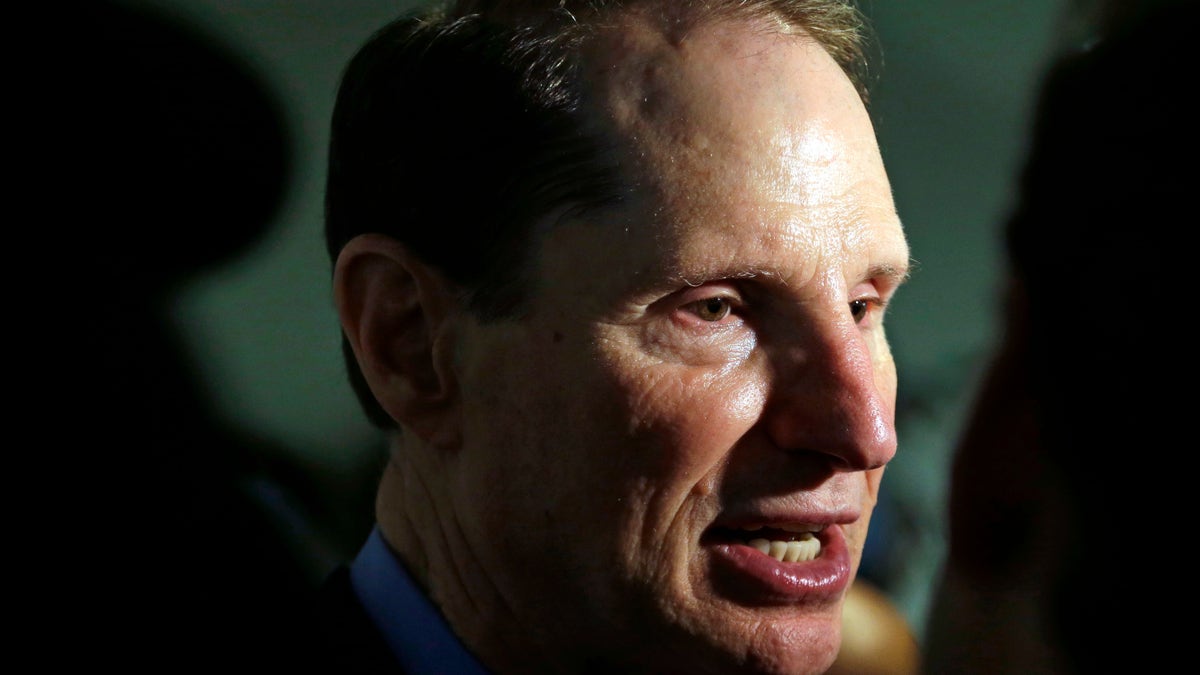
In this Sept. 25, 2015, file photo, U.S. Sen. Ron Wyden, D-Ore., speaks after a news conference in Portland, Ore. A frequent critic of the pharmaceutical industry, despite receiving more than $40,000 from opioid drugmakers to his campaigns and his leadership PAC in the past decade, Wyden proposed eliminating the exemption and using the $75 million to fund addiction treatment for low-income pregnant women, who must forfeit their Medicaid prenatal coverage before seeking treatment. (AP Photo/Don Ryan, File)
The Associated Press and the Center for Public Integrity investigated how pharmaceutical companies are using their political clout to push a new form of opioids as their answer to the epidemic of prescription painkiller abuse. The pills are marketed as abuse-deterrents because they usually are difficult to crush and dissolve, but they also are lucrative for the industry.
Some key findings:
- Lawmakers in 35 states introduced more than 100 bills over the last two years dealing with the harder-to-abuse opioids. Roughly half included nearly identical language requiring insurers to cover the new formulations, and several of the sponsors said they received the wording from pharmaceutical lobbyists.
- At least 21 bills related to abuse-deterrent drugs have become state law in the last five years, including five that require insurers to pay for the more expensive drugs.
- Manufacturers of abuse-deterrent opioids have spent more than $20 million on federal lobbying efforts that included legislation promoting those drugs between 2012 and 2015.
- Drugmakers also have tried to influence state attorneys general. Two of the biggest, Purdue Pharma and Pfizer, gave a total of $950,000 to the Republican and Democratic attorneys general associations in 2015 and 2016, more than in the previous four years combined.
- Abuse-deterrent painkillers represented less than 5 percent of all opioids prescribed last year but generated more than $2.4 billion in sales - roughly a quarter of the entire U.S. market for the drugs.
- Converting the U.S. Department of Veterans Affairs medical system exclusively to the new formulations, according to one recent VA estimate, would increase its spending on prescription painkillers more than tenfold, to over $1.6 billion annually.
- A federal bill passed this summer that includes a provision promoting abuse-deterrent opioids is expected to cost the federal government $75 million in lost Medicaid payments over 10 years. Makers of such harder-to-abuse drugs spent more than $1.7 million on lobbying efforts in 2016 that included that bill.








































